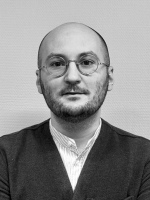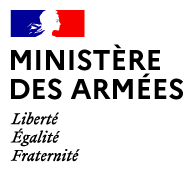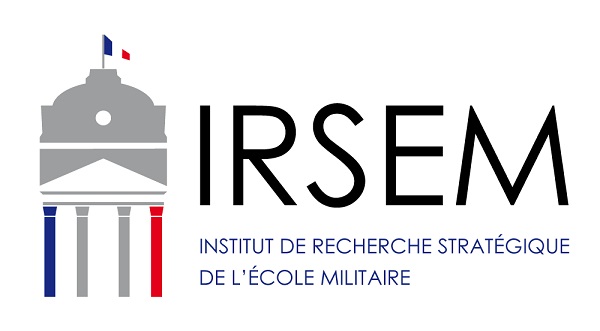
DIDIER Dr Brice
Chercheur postdoctorant IRSEM-Europe
Biographie
![]()
Brice Didier est chercheur postdoctorant à l’IRSEM-Europe et au Centre d'Études internationales (CERI) de Sciences Po Paris, spécialiste de la politique étrangère et de sécurité et des relations extérieures de l’Union européenne (UE), en particulier des initiatives ad hoc et de la variation des formats de coopération, ainsi que de l’adaptation stratégique de l’UE.
Docteur en science politique de l’Université de Genève, il a conduit sa recherche doctorale sous la codirection des Professeurs René SCHWOK (Université de Genève) et Christian LEQUESNE (Sciences Po Paris), sur la politique étrangère et de sécurité de l’UE et les initiatives ad hoc par les groupes informels de ‘grands’ États membres, en particulier les initiatives du Groupe de Contact Balkans sur la Bosnie et le Kosovo, ‘E3’ sur le nucléaire iranien, et ‘Normandie’ sur le conflit russo-ukrainien dans l'Est de l'Ukraine. Intitulée “European Union Foreign & Security Policy and Big Member States’ Ad Hoc Initiatives: Solving the Effectiveness-Legitimacy Equation”, sa thèse est lauréate du Global Strategy PhD Prize 2024 du Collège européen de Sécurité et de Défense (CESD) et de l’Institut Royal Egmont. Sa recherche postdoctorale à l’IRSEM-Europe et au CERI-SciencesPo porte sur l'adaptation du positionnement stratégique de l'UE face à la rivalité sino-américaine, et s'inscrit dans la continuité de ses recherches sur les relations transatlantiques et les stratégies de politique étrangère pour lesquelles il a reçu le Sergio Lopez Perona Memorial prize 2017 et le Luke Foster Best Article runner-up prize 2022 de la University Association for Contemporary European Studies (UACES). Ses recherches ont notamment été publiées dans la European Review of International Studies, le Journal of Contemporary European Research, chez Routledge, dans les EU Diplomacy Papers et College of Europe Policy Brief series.
Brice DIDIER a enseigné à l’Université de Genève aux niveaux bachelor et master : les relations internationales, les relations transatlantiques, l’intégration, les institutions et politiques européennes, les relations extérieures de l’UE, la démarche de recherche en science politique et relations internationale, et encadré des mémoires de recherche en politique internationale et études européennes. Il a également enseigné au sein du Master of Advanced Studies in International Security du Geneva Center for Security Policy et du Global Studies Institute (GSI-UNIGE). Ancien chargé d’études en Affaires internationales de l’Institut des Hautes Études de Défense nationale (IHEDN), et assistant académique du programme transatlantique au Collège d’Europe à Bruges (avec la Fletcher School of Law and Diplomacy à Boston), il fut chercheur invité (visiting) à l'Institut universitaire européen (EUI) à Florence et au Service de Recherche du Parlement européen (EPRS) à Bruxelles, et Fellow de l’Institut Open Diplomacy.
Outre son doctorat, Brice DIDIER est diplômé du Collège d'Europe à Bruges (Master of Arts Relations internationales et Études diplomatiques de l’UE), de l’École normale supérieure Ulm et l'Université Paris 1 Panthéon-Sorbonne (Master Géopolitique), et de Sciences Po Rennes (Master Affaires européennes et internationales, Master Management des Risques, et Bachelor en Service Public).
![]()
Brice Didier is postdoctoral researcher at IRSEM-Europe and Sciences Po’s Center for International Studies (CERI). He is a specialist of the European Union (EU)’s foreign and security policy and external relations, in particular of ad hoc initiatives and variations in cooperation formats, as well as of the EU’s strategic adaptation.
A doctor in political science, Brice DIDIER completed his doctoral research at the University of Geneva under the co-supervision of Professor René SCHWOK (University of Geneva) and Professor Christian LEQUESNE (Sciences Po Paris), on the EU’s foreign policy and the ad hoc initiatives by informal groupings of the ‘big’ member states, in particular the ‘Balkan Contact Group’ initiative on Bosnia and Kosovo, ‘E3’ on the Iran nuclear issue, and ‘Normandy’ on the Russia-Ukraine conflict in Eastern Ukraine. Entitled “European Union Foreign & Security Policy and Big Member States’ Ad Hoc Initiatives: Solving the Effectiveness-Legitimacy Equation”, his dissertation is the laureate of the Global Stratgy PhD Prize 2024 awarded by the European Security and Defence College (ESDC) and the Egmont Royal Institute. His postdoctoral research at IRSEM-Europe and CERI-SciencesPo focuses on the EU’s strategic adaptation to the US-China rivalry. It follows a series of projects he conducted on transatlantic relations and foreign policy strategies, for which he was notably awarded the Sergio Lopez Perona memorial prize 2017 and the University Association for Contemporary European Studies (UACES)’ Luke Foster Best Article runner-up prize 2022. His research has notably been published in the European Review of International Studies, the Journal of Contemporary European Research, by Routledge, in the EU Diplomacy Papers and the College of Europe Policy Brief series.
Brice DIDIER has taught at the University of Geneva at bachelor and master levels on international relations, transatlantic relations, European integration institutions and policies, EU external relations, and research approaches and processes in political science and international relations, and supervised students for their research theses in international politics and EU studies. He has also taught in the Master of Advanced Studies of the Geneva Center for Security Policy and Global Studies Institute (GSI-UNIGE). A former studies officer in International affairs at the Institute for Higher National Defence Studies (IHEDN) in Paris and academic assistant for the Transatlantic Affairs programme at the College of Europe in Bruges (with the Fletcher School of Law and Diplomacy in Boston), he has been a visiting researcher at the European University Institute (EUI) in Florence, the European Parliament Research Service (EPRS) in Brussels, and a Fellow of the Open Diplomacy Institute.
Prior to his doctorate, he graduated from the College of Europe in Bruges (Master of Arts in EU International Relations and Diplomacy Studies), the Ecole Normale Supérieure Ulm and Paris 1 Panthéon-Sorbonne University (Master’s in Geopolitics), and Sciences Po Rennes (Master's in European and International Affairs, Master’s in Risk Management, Bachelor in Public Administration).

